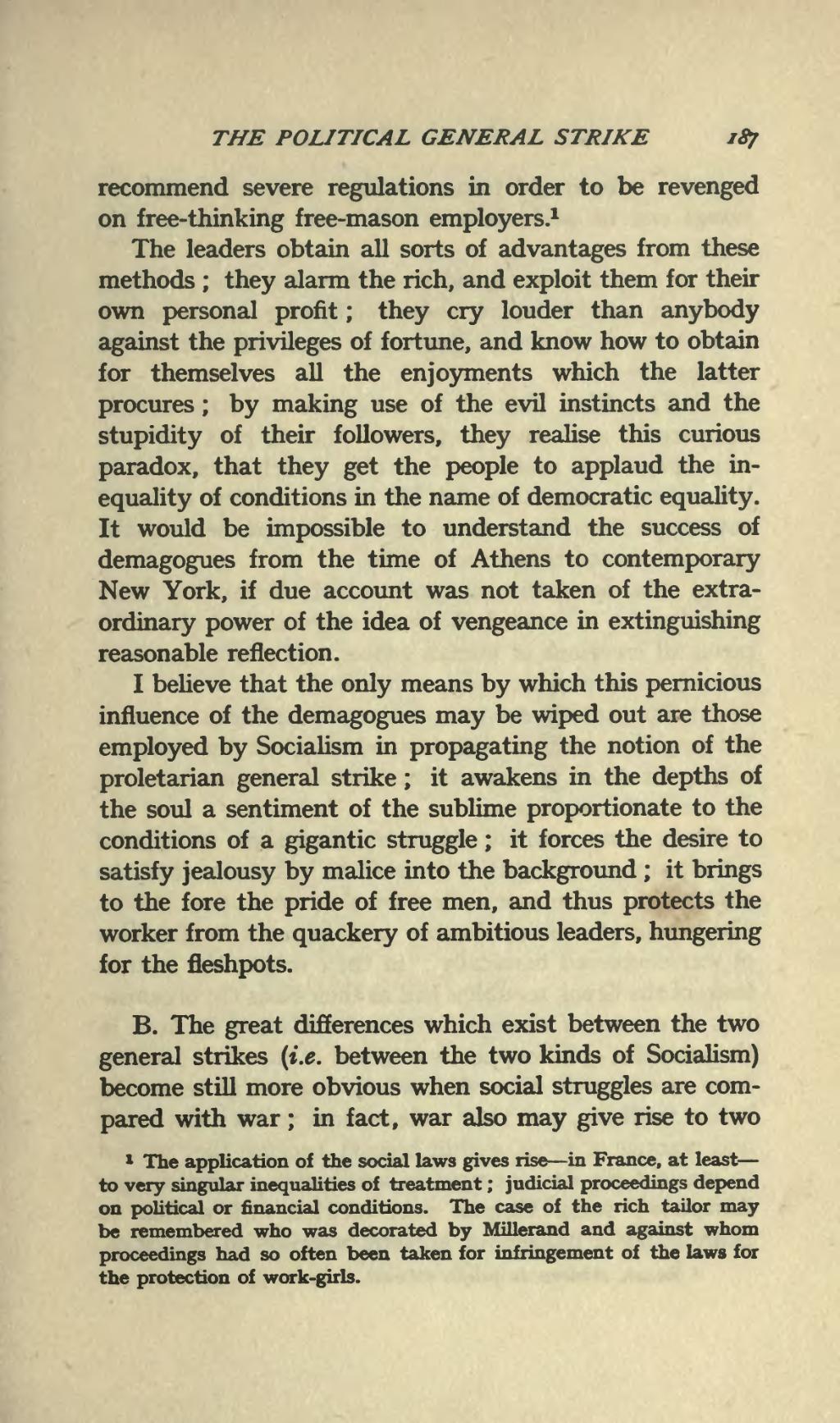recommend severe regulations in order to be revenged on free-thinking free-mason employers.[1]
The leaders obtain all sorts of advantages from these methods; they alarm the rich, and exploit them for their own personal profit; they cry louder than anybody against the privileges of fortune, and know how to obtain for themselves all the enjoyments which the latter procures; by making use of the evil instincts and the stupidity of their followers, they realise this curious paradox, that they get the people to applaud the inequality of conditions in the name of democratic equality. It would be impossible to understand the success of demagogues from the time of Athens to contemporary New York, if due account was not taken of the extraordinary power of the idea of vengeance in extinguishing reasonable reflection.
I believe that the only means by which this pernicious influence of the demagogues may be wiped out are those employed by Socialism in propagating the notion of the proletarian general strike; it awakens in the depths of the soul a sentiment of the sublime proportionate to the conditions of a gigantic struggle; it forces the desire to satisfy jealousy by malice into the background; it brings to the fore the pride of free men, and thus protects the worker from the quackery of ambitious leaders, hungering for the fleshpots.
B. The great differences which exist between the two general strikes (i.e. between the two kinds of Socialism) become still more obvious when social struggles are compared with war; in fact, war also may give rise to two
- ↑ The application of the social laws gives rise—in France, at least—to very singular inequalities of treatment; judicial proceedings depend on political or financial conditions. The case of the rich tailor may be remembered who was decorated by Millerand and against whom proceedings had so often been taken for infringement of the laws for the protection of work-girls.
